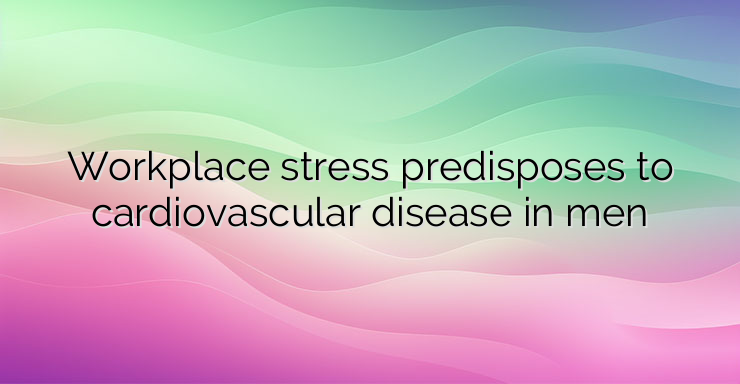Workplace stress is a newly identified risk factor for cardiovascular disease in men. Another new risk factor is high effort in a place where it is not rewarded. Men in stressful positions at their companies have a higher risk of cardiovascular disease, with stress clearly linked to adverse outcomes such as high blood pressure and an increased risk of heart attack, stroke and other cardiovascular diseases. But when stress is combined with another workplace factor, that risk is multiplied. This factor represents the feeling that efforts are not adequately rewarded. It has been suggested that when these two factors are present, the risk of heart disease becomes as high as it is with obesity. Heart health can be affected by many factors, some of which are overweight and obesity, diabetes, and the use of alcohol and/or nicotine. High blood pressure and kidney problems can also predispose to heart disease. In men, erectile dysfunction can also be an early sign of cardiovascular disease due to the fact that the penis is a vascular organ and is directly affected by the heart. Low testosterone is also a possible risk factor for heart problems. Problems such as metabolic syndrome, which affect sugar, blood pressure and cholesterol, can also affect testosterone levels in the male body. Stress is one of the biggest predisposing factors for heart problems in men and women. Chronic stress can build up on the body and directly affect the blood vessels. Some other potential consequences of stress, such as certain mental illnesses such as depression and anxiety, can also affect stress levels in everyday life. Scientific research shows that after an emotional outburst due to stress, the risk of a heart attack is five times higher in the next two hours, and the risk of stroke is three times higher. Stress management is important for everyone because chronically experiencing stress can lead to a host of negative effects, both physiological and mental and emotional. The scientific study that found the link between these workplace factors and heart health was published in the journal Circulation: Cardiovascular Quality and Outcomes. References: Brisson, C. (2023, September 19) Psychosocial Stressors at Work and Coronary Heart Disease Risk in Men and Women: 18-Year Prospective Cohort Study of Combined Exposures. Retrieved 2023, September 25 from https://www.ahajournals.org/doi/10.1161/CIRCOUTCOMES.122.009700


Leave a Reply